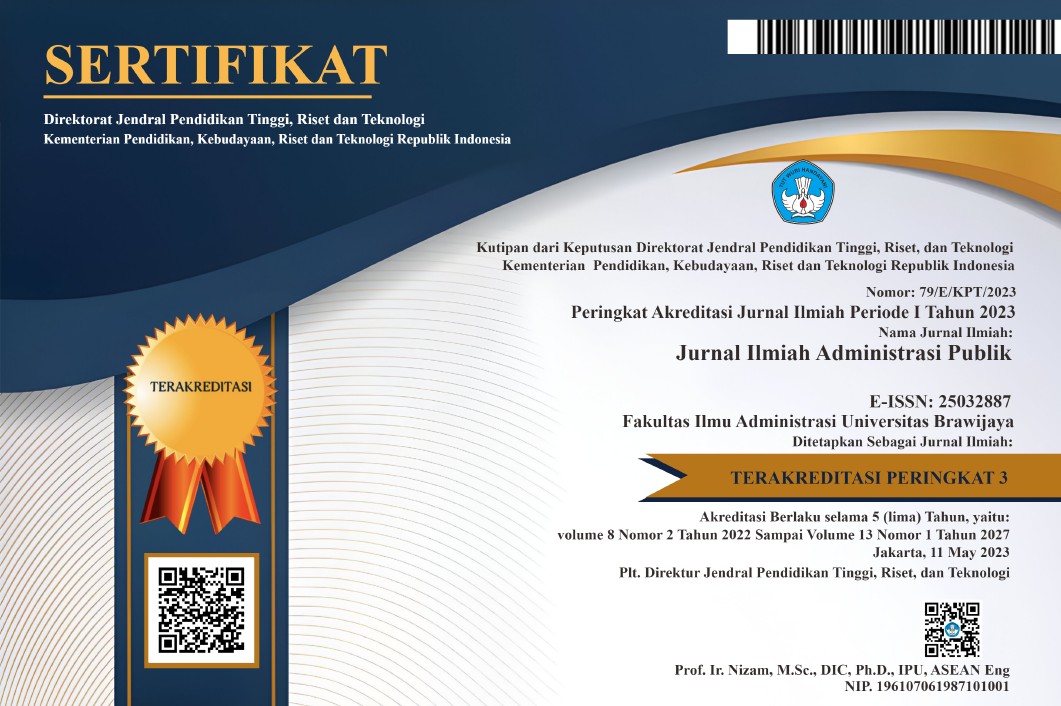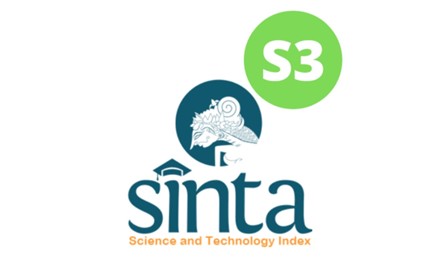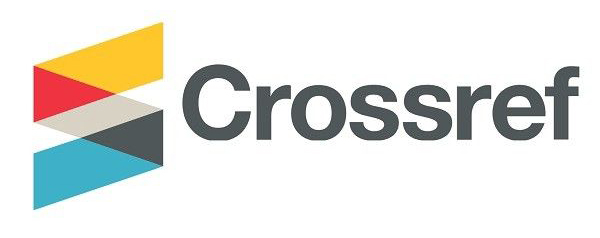The Implementation of Participation Principles in Good Governance
DOI:
https://doi.org/10.21776/ub.jiap.2016.002.02.7Keywords:
empowernment, good governance, good governance principles, partisipationAbstract
A Shift occurs on the development paradigm from the political development orientation, citizens’ economy development paradigm up to local independence paradigm. With the participation, subsequently the development activities should be surely understood, not only considered as a responsibility but also require the citizens’ participation in order to improve their life quality. Merjosari Village has the society participation channel in a form of a neighborhood group Savings and Loan named “Srikandi†as an opportunity for the society to improve their local economy especially family economy. The result of the study showed that citizens’ participation in neighborhood Group (RT) 06, Community Group (RW) 11, Merjosari Village, Lowokwaru District, Malang in increasing the family economy through Srikandi could be seen from a forum that accommodates society participation and capability to take a part so that it can continuously progress. The emphasis of Srikandi was on the economy development through informal sectors, such as on the small-scaled industries which can give multiplier effect in increasing family economy so that local independence can be reached.
References
Adisasmita, R. (2013). Pembangunan Perdesaan. Yogyakarta: Graha Ilmu.
Indradi, S.S. (2010). Etika Birokrasi dan Akuntabilitas Sektor Publik. Malang: YPN, CV Sofa Mandiri dan Indonesia Print.
Ismoyo, C., Muluk, M.K, & Saleh, C. (2015). Peningkatan Partisipasi Masyarakat dalam Pengelolaan Sampah Rumah Tangga. Jurnal Reformasi. 5 (1): 75-88.
Krina, Loina Lalolo P. (2003). Indikator & Alat Ukur Prinsip Akuntabilitas, Transparansi & Partisipasi. Jakarta: Sekretariat Good Public Governance Badan Perencanaan Pembangunan Nasional.
LAN-BPKP. (2000) Akuntabilitas dan Good Governance. Jakarta. (Module AKIP).
Mardiasmo. (2002). Otonomi dan manajemen keuangan daerah. Yogyakarta: PT. ANDI.
Uzzaman, W. (2010). Value of people’s participation for good governance in developing countries. Transforming Government: People, Process and Policy. Vol. 4 No. 4 pp. 386-402.
Sedarmayanti. (2009). Reformasi Administrasi Publik, Reformasi Birokrasi dan Kepemimpinan masa depan. Bandung: PT. Refika Aditama.
Snyder, D.A. (2011). Two Problems with the Value of Participation in Democratic Theory and Copyright. International Journal Proquest. Vol. 89 No.4 pp.1019-1040.
Sunarti, E. (2006). Indikator Keluarga Sejahtera: Sejarah Pengembangan, Evaluasi dan Keberlanjutannya. Fakultas Ekologi Manusia: IPB.
Suryono, A. (2010). Dimensi-dimensi Prima Teori Pembangunan. Malang: UB Press.
Theresia, A. dkk. (2014). Pembangunan berbasis masyarakat. Bandung: Alfabeta.
Downloads
Published
Issue
Section
License
If your paper is accepted, the author identified as the formal corresponding author for the paper will receive an email prompting them to login into Author Services; where via the JIAP Author Licensing Service they will be able to complete the license agreement on behalf of all authors on the paper.














